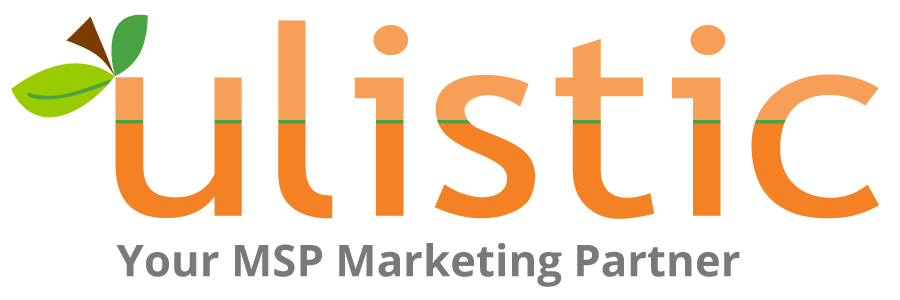Google Is Going To Shutdown Your Ads
The news of data breaches and ransomware attacks like the Kaseya and REvil ransomware attacks in the IT and MSP industry have placed MSPs and IT providers under a bright spotlight, and have subjected them to augmented scrutiny from media outlets and the public. The access that MSPs and IT providers have to clients' infrastructures makes them targets of malicious cyber activities. Now, this is something that individuals and organizations outside of the IT and MSP industries are starting to pay attention to.
We know that decisions to update policies and changes often take place after major events, shifting the perceptions of the public and media outlets. How has this latest shift in the MSP and IT environment impacted activities outside the industry? Will the current state of the MSP ecosystem influence the Google marketing strategies many have relied on for so long to promote their products and services? If so, how will MSPs make preparations for what's to come?
Creating Google Ads for Your MSP
With the rise in cyber threats and cyberattacks, MSPs are doing their best to thrive and survive by implementing new tactics and making changes to their current strategies. Many MSP owners invest a significant amount of money in Google Ads. Why? Google Ads can be fairly easy to set up. However, a successful Google Ad campaign will require a step-by-step process.
There is a major difference between a Google Ad campaign that is properly optimized by a digital marketing specialist and a Google Ad campaign that is created by an MSP owner or IT service provider who has other major responsibilities and cannot monitor and optimize the campaign when needed.
When utilized properly, Google Ads can provide a significant ROI (return on investment). With Google Ads, your MSP can receive legitimate inquiries in hours or days if your Google Ad is effective.
Google is Restricting Third-Party Technical Support Ads
If you search on Google for anything from "homeowner's insurance" to "care insurance," you will likely see numerous advertisements for different insurance services and providers and listed at the top of the search results. If you search for "IT service" or ''MSP services'', on the other hand, you may not see a significant number of ads appear. Instead, Google will give users a list of nearby companies, provided in map form. This is not happening by accident.
Google is restricting ads from ''third-party consumer technical support'' providers. This is not the first time Google has placed restrictions on ads. In the past, Google introduced similar restrictions for other industries that Google felt were misusing and abusing its ad networks.
Originally, Google's intentions were to remove ads from scammers posing as MSPs or IT service companies. According to Google, there would be a verification system that would be used to prove the legitimacy of the ads. According to Google's Director of Global Product Policy, David Graff, Google was seeking to prevent "misleading ad experiences" by third-party technical support businesses.
Therefore, Google felt their decision to restrict those ads was justified. Google's lists include examples of ''non-exhaustive" types of services, and you can conclude that Google was targeting the fraudulent claims of increasing the speed of your devices, promises to remove all viruses, password recovery, and other issues with devices or accounts:
Examples (non-exhaustive): Technical support for troubleshooting, security, virus removal, internet connectivity, online accounts (for example, password resets or login support), hardware support and repairs, or software installation.
According to Google, the decision was made because there was an increasingly alarming number of misleading experiences that came from third-party technical support providers. In 2019, Google revealed that they were facing difficulties in the creation of the verification program they promised to use to eliminate the bad actors. If Google continues to treat all third-party consumer technical support providers as fraudsters and only directs consumers to Google Maps and other search results, Google can hamper MSP organizations. As of now, there is still a ban on third-party technical support providers, which means more Google Ads could be shut down.
What Should MSP Leaders Do Now?
While MSP leaders have long recognized the benefits of Google advertisements for getting leads, many MSPs have grown incredibly frustrated with the regulations restricting those advertisements for their services. When the decision to restrict those Ads was first announced by Google, numerous MSP leaders around the world saw their Google Ads disappear overnight, and many of them turned to social media to express their disappointment and frustration. MSP leaders also reached out to Google, but soon discovered that there would be very little hope of getting the Google Ads reinstated.
Moving forward, there are still types of Google Ads that are permitted, but there are also Google Ads that could get the boot from Google, or it could lead to a suspension of your Google Ad account. While you can still advertise your MSP services, it is important to know what keywords are suitable and what keywords are not. You can advertise your services if you do not correlate your services to a specific product sold by a third-party provider.
Unfortunately, this can make things very challenging because, as an MSP leader, you are in the business of providing support for third-party technologies and applications. We understand that more MSP leaders may be turned away from using Google Ads because of the restrictions implemented by Google. However, MSPs of all sizes should not be discouraged from implementing a Google Ad campaign that can still be effective.
While it may be a complex process, it is becoming increasingly important for MSPs to implement processes and strategies that will work. We also encourage MSP leaders to test the waters and create new marketing strategies to expand their reach.
The restrictions by Google on tech support ads do not mean this has to be the end of your digital marketing efforts. There are numerous marketing channels that can be utilized to reach your target audience.
Contact Ulistic today for more information on how you can transform your digital marketing strategies.



